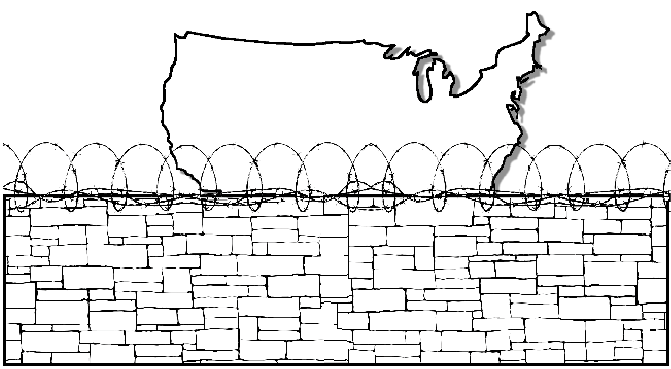By Louise Carhart
carhartl17@grinnell.edu
As the country continues to reel from the election of President-Elect Donald Trump, the results of his election have been all too tangible for those targeted by racist ideology. In the City of Grinnell, this has manifested in harassment cases involving college students but also reaching farther into the daily lives of residents. Incidents at Grinnell-Newburg Community High School (GHS) have increased with the results of Election Day, preventing many students from feeling secure in their place at the school.
“A young man was running down the hall and he told someone to get shipped back to Mexico and that’s when the principal said a Hispanic student had a panic attack,” said Anita DeWitt ’17, SGA president. “[The principal] also had to give a suspension because someone said ship that n—- back to Africa.”
Incidents like these have caused some students to feel threatened in their place as community members. Students have formed a Diversity Alliance that has met with DeWitt to facilitate conversations about what they can do to protect themselves as well as confront the reality of their situation. As Trump takes office, it will likely become increasingly hard for already marginalized groups to feel normal.
DeWitt, along with Cassidy Hilburn ’20, visited GHS and plan to continue reaching out and encouraging dialogue between the College and GHS.
“[We are thinking of] having people’s reaction to the election [in a public place] but without names or anonymously, and this will be students, it will be faculty, it will be community members, it’ll be high schoolers and college students and you’ll be able to reflect and take it in and no one’s talking at you or to you,” DeWitt said. “We haven’t been able to have that yet.”
This idea is meant to bridge the gap between GHS and the College and provide the resources available at the College to those in need of them. More immediately, DeWitt hopes to meet with the principal and the Diversity Alliance again to help establish their next steps.
Town Incidents
In regards to incidents within the City of Grinnell, there has not been an increase in the number of hate crimes in the days following the election. Grinnell Police Chief Dennis Reilly said that although reports have been made regarding harassment based on identity, these events cannot be classified as hate crimes under the Iowa Legal Code.
“Harassment is conduct with the intent of annoying or alarming someone. Harassment is usually verbal … usually in terms of calling at late or inconvenient hours or repetitive contact despite the person saying I don’t want to talk to you,” Reilly said. “If acts of ignorance could be channeled into harassment charges, we would be locking up a lot of people.”
While Reilly has encountered many cases over his five years of service regarding harassment of students based on what would normally fit under a hate crime criteria, the Iowa Legal Code prevents filing any type of harassment as a hate crime. Without this legal backing, it is difficult to pursue harassment charges.
“[When I worked in] New Jersey there must have been 15 offenses that could be classified as a bias incident. In Iowa there’s only a couple. For example, harassment is not one of them,” Reilly said. “Quite frankly when I got here and got to know the Iowa code a little bit, I went ‘I wonder why?’”
Reilly brought up the importance of reporting harassment directly to the police as soon as possible. Instead of calling Campus Safety first and giving the perpetrator more time to distance themselves from the scene, immediately calling 911 and informing the dispatcher of the direction the perpetrator is headed in often results in a higher chance of catching them.
“Three or four years ago when I met with student government and this topic came up and I said you guys have got to be calling 911, the College administration’s heads went 360 … because that’s not what ingrained in the College,” Reilly said.

























































